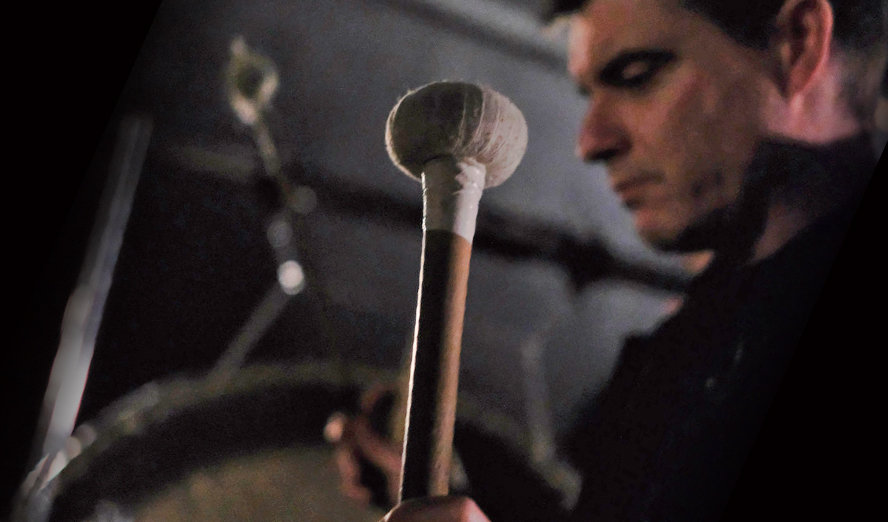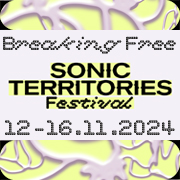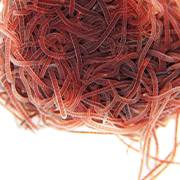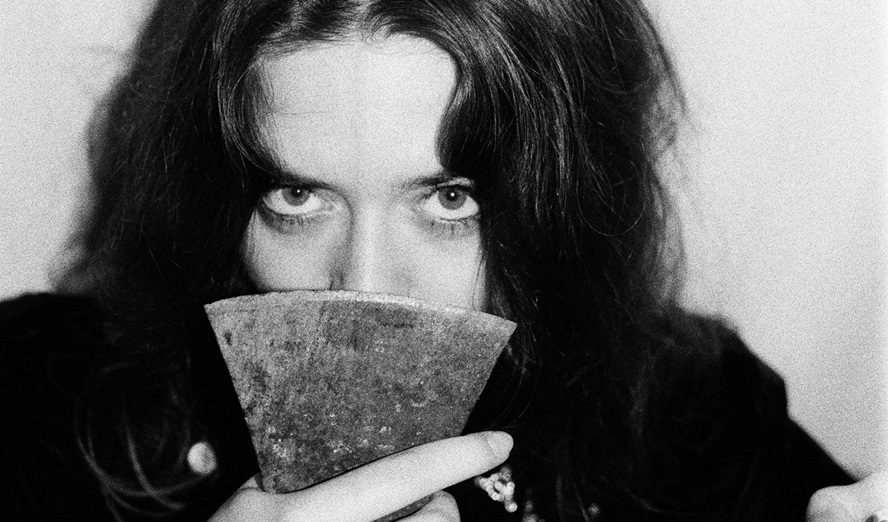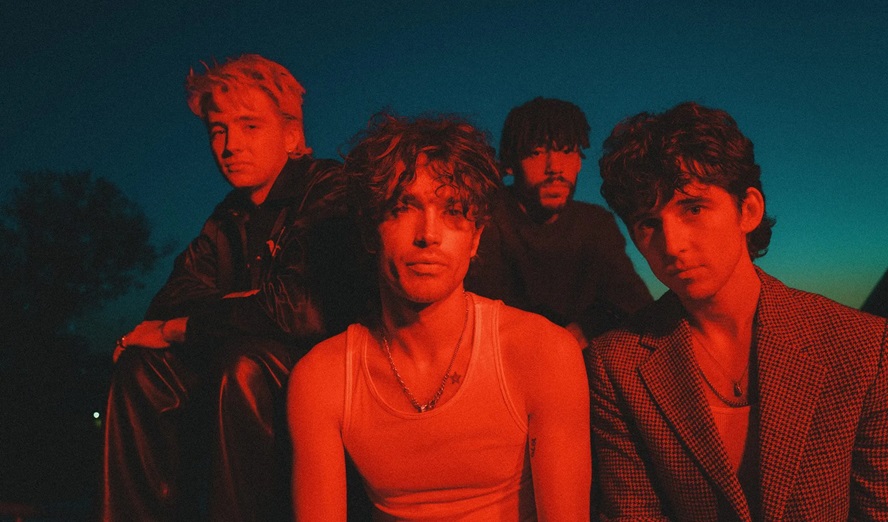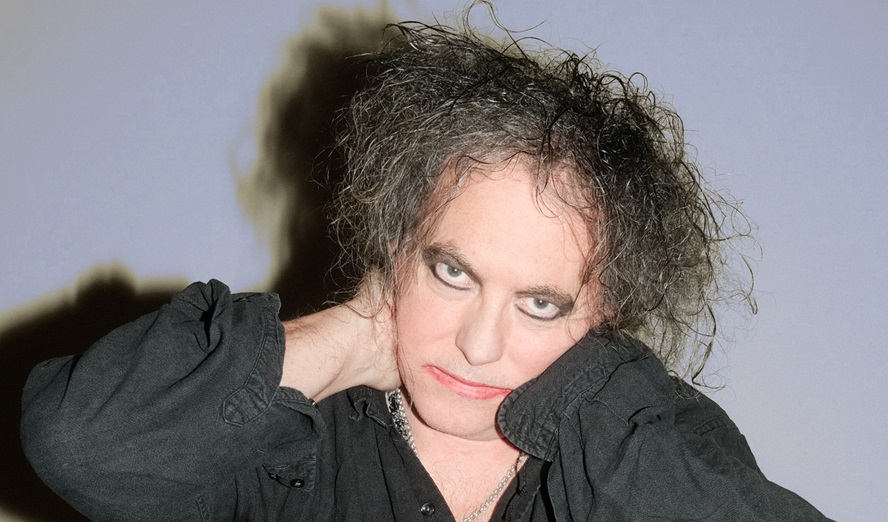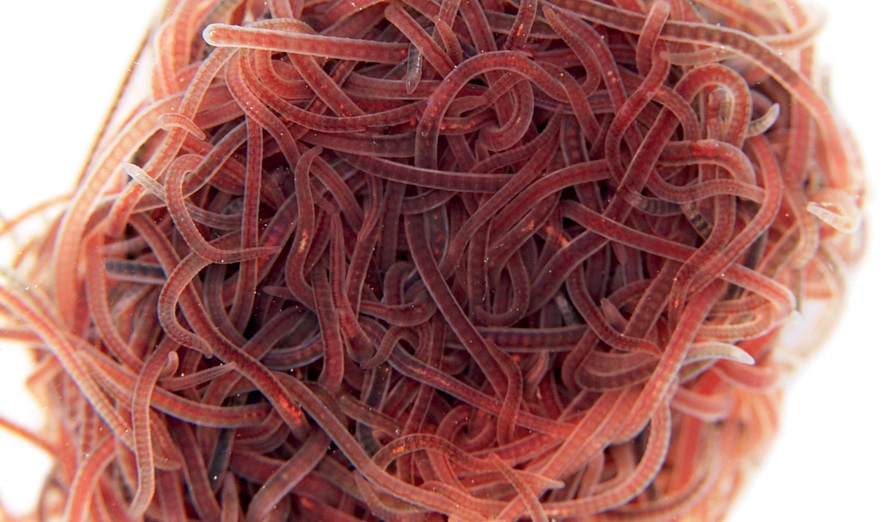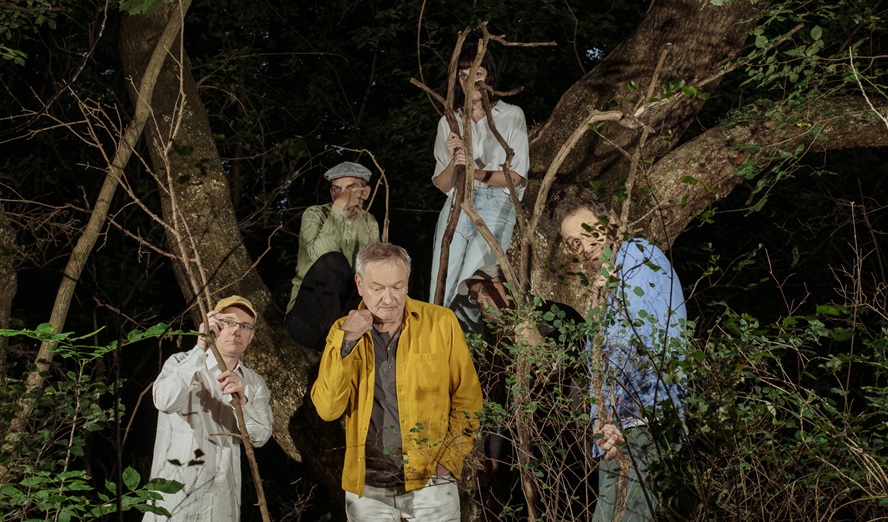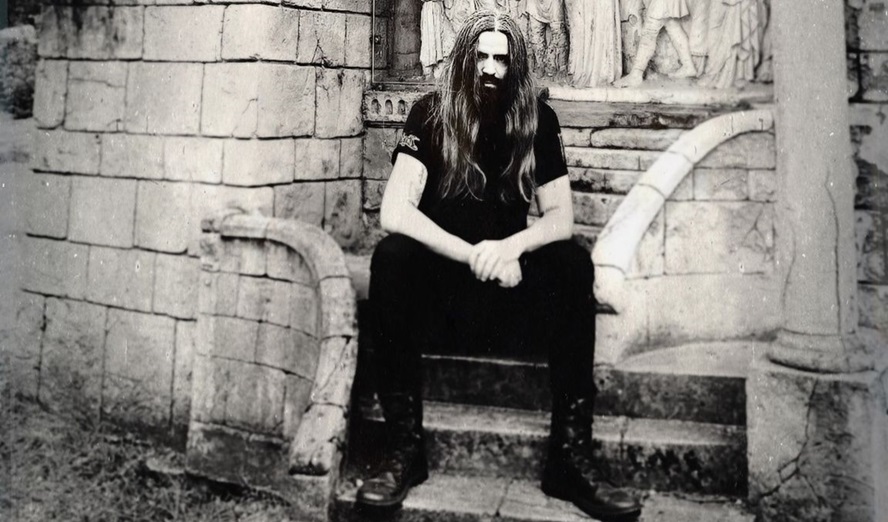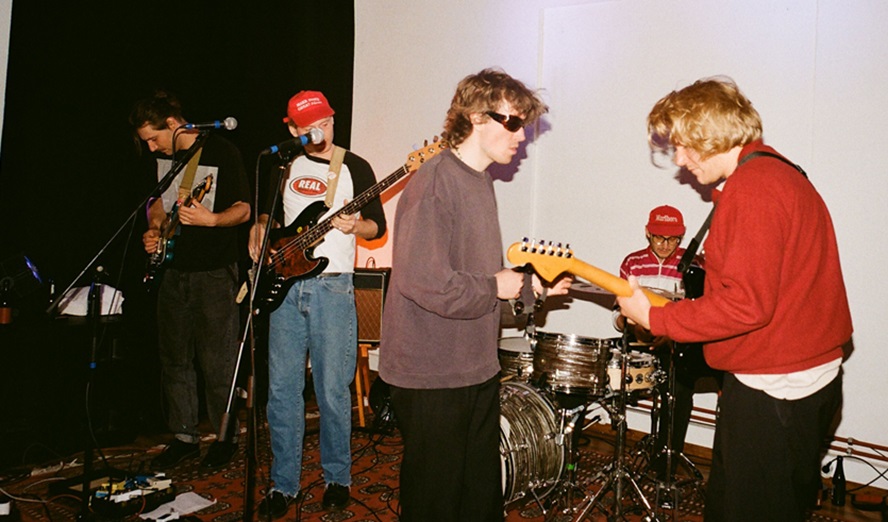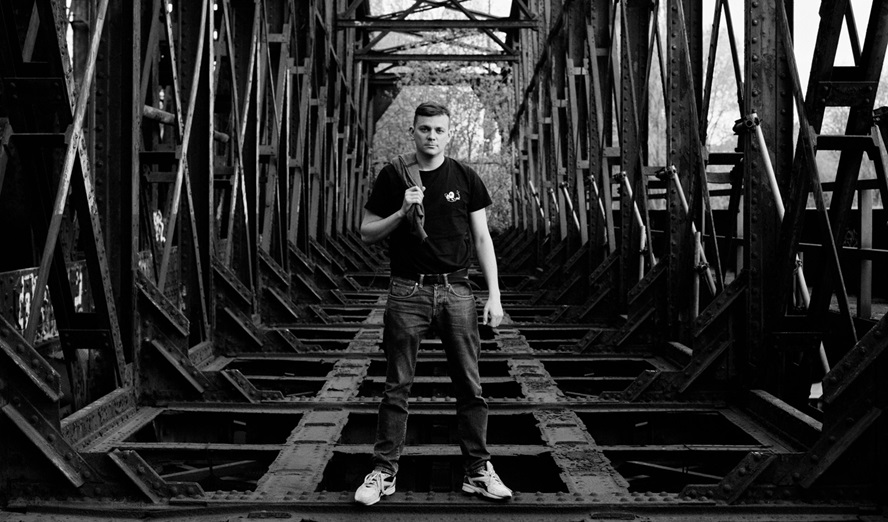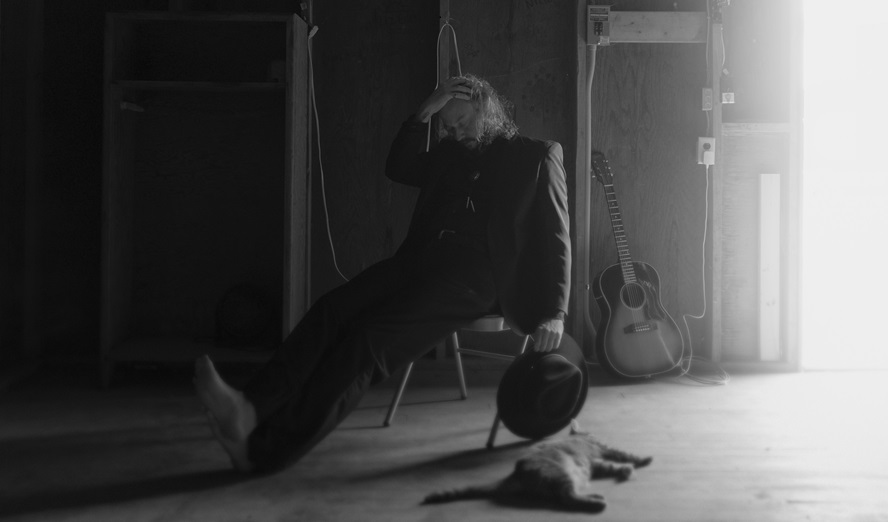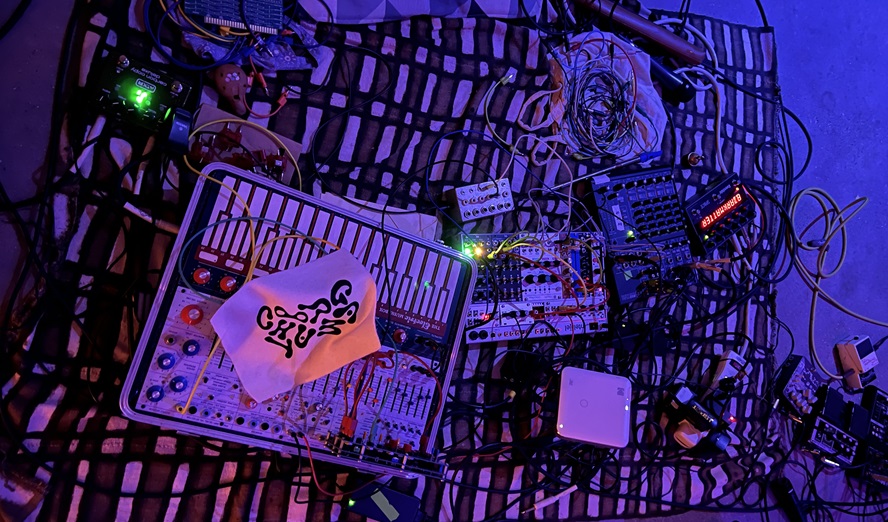skug: You are an Australian percussionist living in Nantes. Last year saw you releasing a magnificently eclectic album called »People Pleaser« on Black Truffle Records. In fact, your career goes back until the early 2000’s. How did you first start to make music?
Will Guthrie: It started probably through my brother who was interested in who’s playing guitar and drums, and was listening to mainly four groups: The Who, Led Zeppelin, Pink Floyd and Kiss, basically. Through him, I got into music and started playing drums around 13 years old.
You released your first official record back in 2003. Since then you’ve played in various other projects and as a solo-percussionist. How do you manage all that?
Basically, that’s all I really ever wanted to do. Even though I have done other things, the focus has been on trying to keep it all going. My first few records were self-released (Antboy Music). That came by necessity to send it off to labels. It was a good learning experience doing it all yourself. In Australia particularly more so than in Europe, there is very little support. Anything you want to do through music you need to do yourself – be it recording or putting out the record and organising gigs.
Did Antboy Music cease to exist?
It’s on stand-by because other people started to release my music (laughs), so I’m quite happy about that, but I never said it’s finished. If I need it for something to put out that no one else wants to put out or something I want to do myself, it’s still there. I think, the idea of a label is just the platform to make the music available and through Antboy I met certain distributors and it’s good to know these contacts.
You mentioned that people started to release your own records …
… sometimes (laughs)
Thankfully they do. Your last album was released on Oren Amabarchi’s label Black Truffle. It’s called »People Pleaser«, an intriguing name because a lot of people wouldn’t necessarily say that it is pleasing in a sense of certain mainstream standards. What is the pleasing element of the record?
I mean, »People Pleaser« in English means someone who’s kind of running around, being nice to everyone. Like these people that are always sort of like there, getting in the way, deliberately agreeing with everyone, never creating any problems. The title came about because the album started to become more and more eclectic and I was really happy with it in a sense that it managed to touch on many of my different interests such as free-jazz, electronic music, noise and music conrcrète. Over the years years, I’ve made albums that may have been focused on only one or two of those approaches. Whereas this one mixed everything up which led me to the idea that it may be something for everyone somehow.
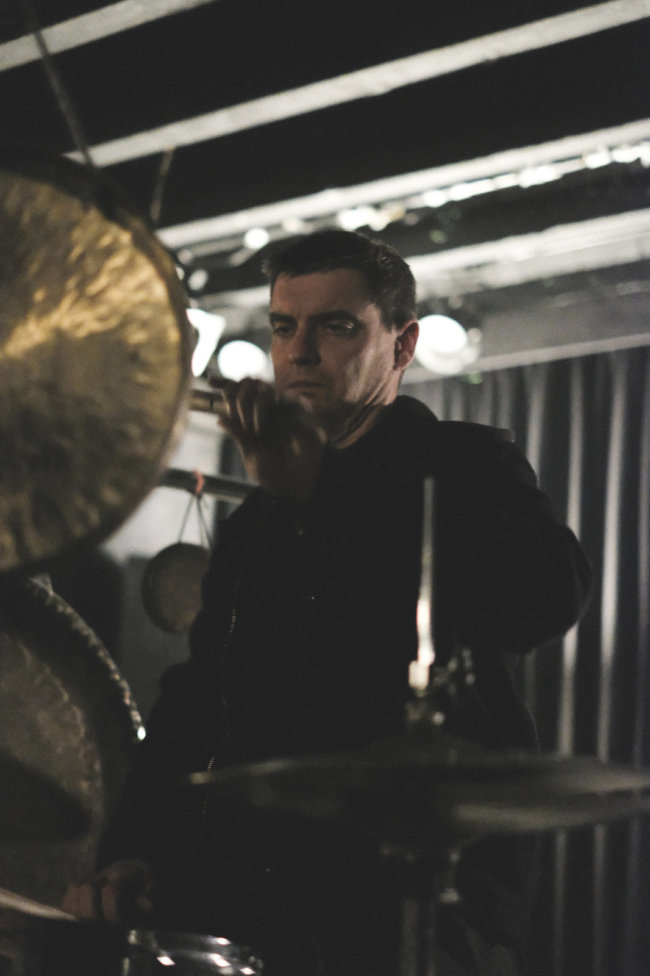
It’s also quiet different to the one you released on iDEAL Recordings three years ago (»Sacrée Obsession«).
Yeah, I try to do albums that are not like my concerts, albums that are one-off. When I do an album, I really take my time and do something different to the last one. I think with the last two, »Sticks, Stones & Breaking Bones«, »Sacrée Obsession«, there were some strong links between them even though the music itself is quite different some of the approaches are very similiar. »People Pleaser« was something different, while I was working on it, it started to become the first time I really mixed drums and electronics. I’ve done other albums using only electronics, field recordings and electronic treatment of percussion and objects and stuff, but the last album is new in a way that all the afore-mentioned are mixed with the acoustic drum kit.
How did you record »People Pleaser«? Did you have the drum patterns first and then putting in the samples or is it rather the other way around?
It was a really strange process, actually. My wife and I were awaiting the birth of our second daughter, so I was at home all the time, waiting, cooking, watching films, relaxing, and I ended up doing the album in three weeks. That’s quite unusual for me because I usually spend ages on my records. I used a lot of stuff which I already had recorded, a bank of material with different samples that I wanted to use plus recordings from films that we were watching at that time waiting for the little one to come – fragmentary snippets of live-recordings for example. Nearly everything you can hear on »People Pleaser« I know exactly where it comes from and how it all came about. It’s a diary, actually. Each piece was put together quickly, one a day, and then a few days piecing it all together, but it was a very quick and instinctive process.
What’s the appeal of playing solo-shows as a percussionist?
I’ve always tried to be aware that there is nothing more boring than a drum-solo (laughs). So, I always try to avoid this kind of flashy, drumtastic, loud and fast stuff. Even though sometimes it is in fact loud and fast, but it has to be something that’s coherent – at least to me, using lots of different percussions, like different objects and gongs. I tried to do it with electronics as well, but it was always difficult to mix the both of them. Up until now, I feel there is enough going on, and I’m getting to the point where I can create multi-directional systems of playing, only acoustic, sans machines.
There’s always a lot going on in your live-sets.
Yeah, that’s enough. I tried to do it with electronics as well, but it was always difficult to mix the both of them. Up until now, I feel there is enough going on, getting to the point where I can create multi-directional systems of playing.
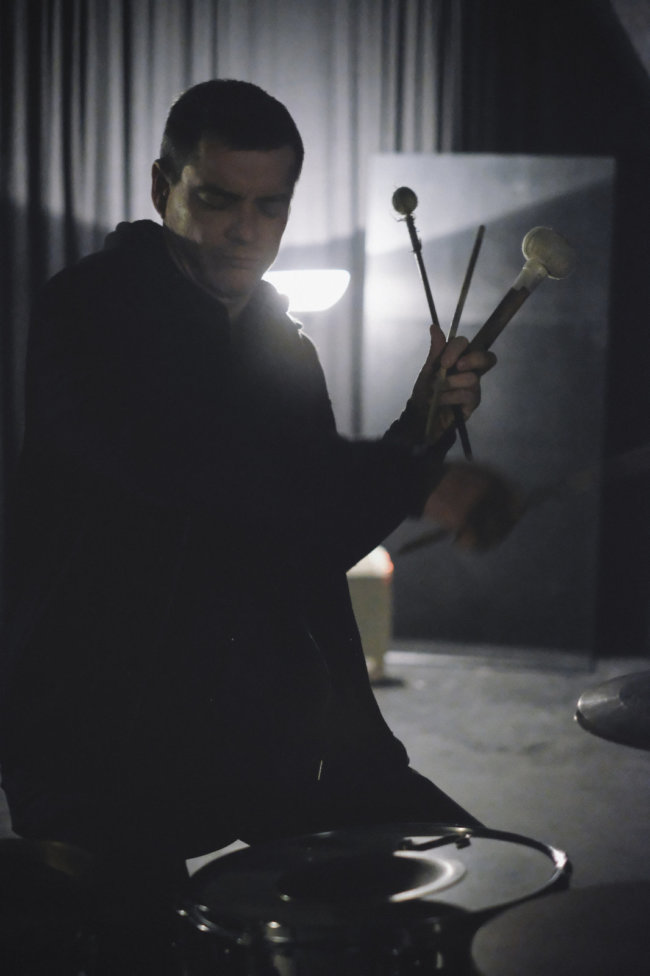
You once pointed out that, with your drumming, you sometimes extend your own physical capabilities. How may I understand that?
There are certain states you can get into while playing drums and probably other instruments as well, you know, like people doing circular breathing on saxophone etc. One can aim to get into a physical state which is producing the sound and through the physical strain of doing it, it can maybe push the music to go somewhere else. It becomes a little less intellectual, especially if you are working with repetitive material. That’s always been interesting to me. How I can create certain repetitive figures that allow me to somehow get physically into the music that I wouldn’t be able to play different styles of music.
Do you aim for that in your improvisations or is it just happening in a way?
I think it’s both. Sometimes, I decide to do a certain type of piece which is very physical, very repetitive – the »Sticks, Stones & Breaking Bones« album was really about playing loud and really long time with the same thing. It also marked the start of that kind of work. I couldn’t physically keep up certain things during a piece, so changes would happen in a way that wasn’t an intellectual decision to change. Those changes were rather happening by the music themselves. For example, my left arm would give out and the music would be forced to change. In a way it’s chance kind of composition, bringing in another element that I couldn’t control even though it was me.
You also have a few other projects going on, like The Ames Room or The Sommes Ensemble. How is that coming along?
Ah, not very well to be honest (laughs), because with The Ames Room, our dear bassist Clayton Thomas moved back to Australia, so we are a little bit on stand-by right now. We played in Austria at Nickelsdorf last year, but it’s tricky having one person on the other side of the world. The Sommes Ensemble actually finished. It was a project that was happening for a few years with French musicians, mainly younger than me. It was great, but every project has a use-by date. Still, there’s a whole lot of new things happening that I’m really excited about. Like working on different recordings with James Rushford, an Australian musician living in Germany. Also, there is more stuff with Anthony Pateras coming up as well and a duo with the English electronic musician Mark Fell.
It seems that there’s still a strong connection to Australia, isn’t it?
There really is, it’s quite odd. I don’t really care where people come from, but someone like James (Rushford) or Anthony (Pateras) share a similar background, so it’s no surprise that we’re attracted to each other’s music.
Besides that, you are also working with Oren Ambarchi…
He’s living in Australia as well, yeah, but when he comes to Europe, we are trying to play and hopefully we are able to do some shows in Canada later this year. Also, there is Mark Fell. He is an electronic musician coming from Australia as well. I’m really trying to think of non-Australians at the moment (laughs). Yeah, there’s a few things coming about with French musicians in the near future.
In the course of preparing for the interview, I found this little anecdote: Back in the days, when you were studying in Melbourne, you started a weekly concert series called Make It Up Club and it turned 20 years recently. Can you tell us a bit more about that?
I’m really happy that this thing is still going. In 1997, with a friend of mine called Ren Walters, we had no way to play, basically. Think of it: we’re in Melbourne, a major city with venues and live music but no place to play more challenging music. We were too out for the jazz scene, too jazz for the rock scene, and ways too strange for any other scene. So with a few other people we got together and started a loose collective, organising shows every Tuesday night. At that time, it was called Improvised Tuesdays, a very imaginative title (laughs). I mean, I left Australia in 2003. It went through many different hands in the meantime, but now it just turned 20 which is really kind of incredible – probably one of the longest running series, every Tuesday night, year in and year out. Many people played there, obviously. It’s just great for the city of Melbourne, I think.
Do you still have a connection to the raising scene over there?
I do. Even though I don’t get there very often, I do know young musicians making really interesting stuff. It’s a good scene over there.
You are playing in complete darkness at Elevate Festival in the course of a concert series called Dunkelkammer. Is this something you’ve done before?
Actually, I really like this idea. I have had a concert in darkness in Paris once, and I’ve done gigs in near darkness and for one person at a time, so I kind of flirted with this idea before. To be quite honest, it’s fantastic. People sometimes say they enjoy watching certain musicians perform, if I am seen or not, it just doesn’t make any difference. I’d say that I like the idea that I am not. For me it’s all about the sound.
